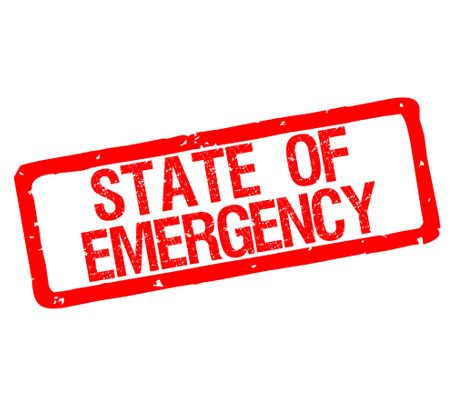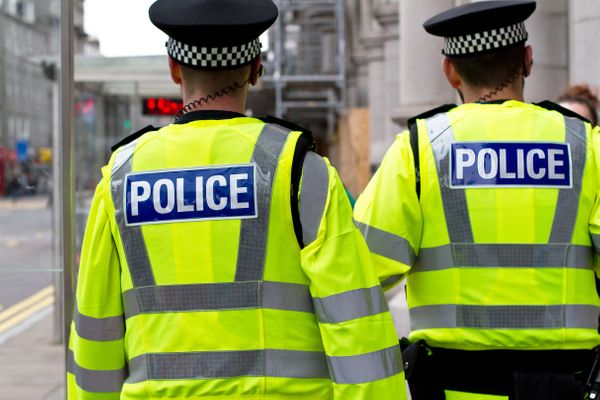2.2.5
Constitutional & Legal Response to Extremism, 1949
Banning Political Parties in the FRG
Banning Political Parties in the FRG
The constitution enabled the government to ban parties which aimed to undermine democracy.


Legacy of the Nazi Party
Legacy of the Nazi Party
- Following WW2, the authors of the Basic Law wanted to prevent any party overturning democracy in West Germany.
- The constitution permitted the government to ban political parties committed to undermining democracy.
Emergency Powers in the FRG
Emergency Powers in the FRG
The government wanted to possess emergency powers. This was not originally part of the constitution following the abuses of Article 48 in the Weimar Republic.


Legacy of the Weimar Republic
Legacy of the Weimar Republic
- Article 48 (which gave the President emergency powers and allowed him to bypass the Reichstag) was abused by President Hindenburg in the Weimar Republic.
- It was arguably necessary as the coalition governments in the Weimar Republic were fraught with internal conflict.
- However, the authors of the West German constitution wanted to limit emergency powers.


Limitations of the constitution
Limitations of the constitution
- The CDU government was frustrated with the lack of emergency powers. They believed it hindered their response to extremists.
- Adenauer’s government tried to push through legislation which would bestow them with emergency powers. However these attempts, in 1958, 1960 and 1963, were blocked by the SPD.


The SPD changes its mind
The SPD changes its mind
- The SPD came to power after 1965.
- Following the rising protests by the student movement and New Left (which culminated in 1968), the government passed through legislation granting emergency powers.
- The government could suspend civil liberties and intercept communications between suspected extremists.


Preventing history repeating itself
Preventing history repeating itself
- The FRG government was conscious that Hitler’s Enabling Act (1933) could not be repeated.
- It placed restrictions in place which prevented this from happening:
- The Bundestag was in session whilst the government used emergency powers. It had to agree with the declaration of emergency.
- The state of emergency could only last six months. The Bundestag alone could decide if the state of national emergency should continue.
Quashing Extremism in the FRG
Quashing Extremism in the FRG
The West German government introduced harsh measures to deal with the RAF and the Neo-Nazis.


The RAF
The RAF
- Under Brandt and Schmidt, the West German government launched initiatives to stop the RAF.
- In 1972, a police operation was launched to hunt down RAF members.
- In 1973, the Bundestag passed legislation which worsened prison conditions for terrorists.
- In 1977 (after the ‘German Autumn’ a period of intense RAF activity), the government limited the rights of inmates in prison. Communication between RAF members and lawyers were restricted.


Neo-Nazis
Neo-Nazis
- In the 1980s, the government turned its attention to neo-Nazi groups.
- The government banned several neo-Nazi groups.
- A 1991 EMNID study found that 4% of East Germans had extreme anti-semitic tendencies vs 16% in West Germany.
1Political & Governmental Change, 1918-1989
1.1Creation & Collapse of Weimar, 1918-1932
1.2Nazi Dictatorship, 1933-1945
1.3Return to Democratic Government, 1945-1989
2Opposition, Control & Consent 1918-1989
2.1Opposition to Government, 1918-1989
2.2Controlling the People, 1918-1989
3Economic Developments & Policies, 1918-1989
3.1Reacting to Economic Challenges, 1918-1932
3.2Controlling the Economy, 1933-1945
3.3Creating the Social Market Economy, 1945-1989
4Aspects of Life, 1918-1989
4.1Attitudes Towards Women, 1918-1989
4.2Education & Cultural Developments, 1918-1989
5Historical Interpretations
5.1Influence of German History
5.2Hitler & Foreign Policy
5.3Contribution of Other Nations to WW2
5.4Reasons for Invading Poland
Jump to other topics
1Political & Governmental Change, 1918-1989
1.1Creation & Collapse of Weimar, 1918-1932
1.2Nazi Dictatorship, 1933-1945
1.3Return to Democratic Government, 1945-1989
2Opposition, Control & Consent 1918-1989
2.1Opposition to Government, 1918-1989
2.2Controlling the People, 1918-1989
3Economic Developments & Policies, 1918-1989
3.1Reacting to Economic Challenges, 1918-1932
3.2Controlling the Economy, 1933-1945
3.3Creating the Social Market Economy, 1945-1989
4Aspects of Life, 1918-1989
4.1Attitudes Towards Women, 1918-1989
4.2Education & Cultural Developments, 1918-1989
5Historical Interpretations
5.1Influence of German History
5.2Hitler & Foreign Policy
5.3Contribution of Other Nations to WW2
5.4Reasons for Invading Poland
Unlock your full potential with Seneca Premium
Unlimited access to 10,000+ open-ended exam questions
Mini-mock exams based on your study history
Unlock 800+ premium courses & e-books
